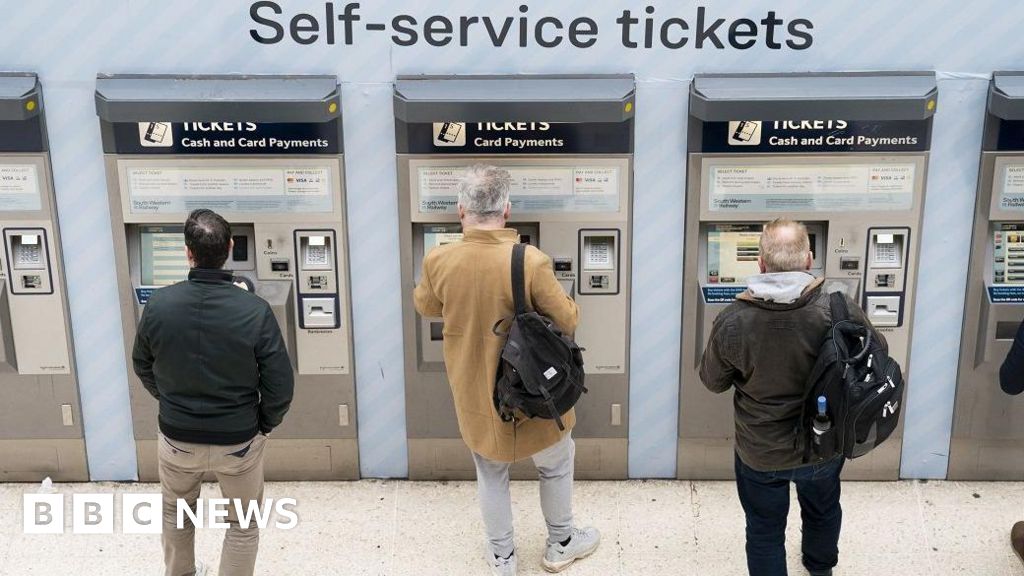So many things wrong, we were never the envy of Europe, we were the cash cow of Europe. European state operators ran our services for profit to subside their own.
The rolling stock leasing companies are the place where all the money goes, I would rather see them nationalised than the franchises themselves. However as they are owned by the banks we can’t touch them.
Also the claim that privatisation increased passenger numbers is wrong, they were going up before.
Additionally the idea that the private system is cost effective is wrong aswell. The subsidy paid out to the rail is higher now than under BR.
This is the best summary I could come up with:
"We’ll make them more accessible, more transparent and more trustworthy for passengers, " she said.Ms Haigh also said Labour would deliver a “best fare guarantee”, so people could be sure they are always paying the lowest fare for their journey.Labour pledges to renationalise most rail services within five yearsHowever, railway specialist Tony Miles - who has covered the industry for over 40 years - said any savings were likely to be minimal because the private operators’ profit margins are already so small, at an average of 12p for each passenger journey.He argued this would mean Labour would only be able to pass on very small savings per journey.
During the pandemic, the government in effect took control of the railway, with most train companies in England moving onto contracts where they get a fixed fee to run services, and the taxpayer carries the financial risk.The situation is different in Scotland and Wales, where passenger services are already run by the devolved governments.
In Northern Ireland, the system is fully nationalised.Under Labour’s plans, a new arm’s-length body, Great British Railways (GBR), would take over the service contracts currently held by private firms in England as they expire in the future.However, GBR would continue to lease rolling stock from private firms, and there is no plan to nationalise rail freight companies.Whether it will make the trains run better “comes down to how they’re going to fund things”, says Peter Simmons, deputy editor at International Railway Journal.
Luxembourg operates a fully state-run system where all train journeys are free, and train tickets in other European countries with more state control than the UK can be much cheaper.However, those networks also receive lots of government investment, which can mean higher taxes.Mr Miles argues the UK’s franchising system, whereby the government owns the network through National Rail and hands out operator contracts to private companies, was the “envy of Europe” before Covid hit.He said passenger numbers have increased as a result of the franchise system, but added that the contracts written during Covid were done so “in a rush” and are “too generous”.He pointed to Transport for London and the Manchester bus service as examples of where a state run franchising system to private contractors can work.Mr Simmons says trains in the UK are “not as bad as people think”.
There would not necessarily be any upfront costs to do this.However, doing so would also mean taking on the railway operators debts, leases, and liabilities, such as their pension fund pots and the lease contracts for the trains.If Labour wanted to invest in the railway network or buy back the trains, that would cost money.Labour says its plans would save the taxpayer £2.2bn a year, but Louise Haigh said she had no guarantee that all this money would be reinvested in the railways.Andy Bagnall, the chief executive of Rail Partners, which represents private operators on the rail network, says nationalisation will lead to higher costs in the long run.He says that without the commercial focus of private firms, “costs would creep up over time, revenue growth will be slower and the taxpayer is the one that loses out”.
UK private operators’ contract expiry datesSouth Western - May 2025Essex Thameside (c2c) - July 2025East Anglia - September 2026West Midlands - September 2026Chiltern - December 2027Thameslink, Southern and Great Northern - April 2028Great Western - June 2028East Midlands - October 2030Cross Country (Arriva) - October 2031West Coast - October 2032Does not include break or extension clausesUK public operatorsCaledonian SleeperEast Coast (LNER)NI RailwaysNorthernScotRailSouth EasternTransPennine ExpressTransport for WalesSource: Rail Partners
The original article contains 931 words, the summary contains 591 words. Saved 37%. I’m a bot and I’m open source!



